SRCD Latinx Caucus Current Leadership
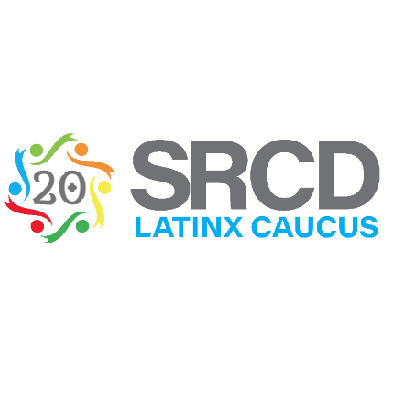
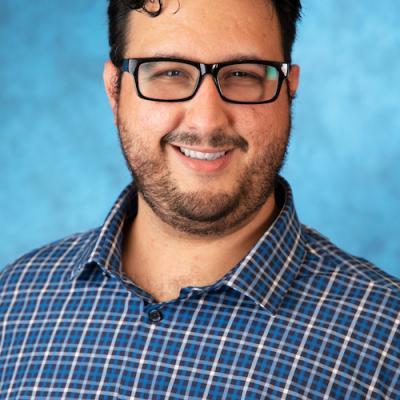
Dr. Alan Meca, Chair
Dr. Alan Meca is an Associate Professor in the Department of Psychology at the University of Texas at San Antonio (UTSA), the Director of the Team on Acculturation, Risk, and Development of Identity and Self (TARDIS), and an Associate Editor for the Journal of Research on Adolescence (JRA). Dr Meca received his Ph.D. in Applied Developmental Science from Florida International University in 2014 and completed a postdoctoral fellowship at the University of Miami under Dr. Seth J. Schwartz. Broadly, Dr. Meca’s research has focused on developing a better understanding of identity development, particularly among Hispanic/Latinx youth. In pursuit of this agenda, Dr. Meca has made substantive contributions to our understanding of acculturation, cultural stress theory, and ethnic/racial identity. Beyond his scholarship, in addition to his role as Chair for SRCD Latinx Caucus, Dr. Meca is the Dean’s Fellow for Faculty Success for the College for Health, Community, and Policy at UTSA, a member of SRCD’s Ethnic & Racial Issues (ERI) Committee, and the chair for the Society for Study of Emerging Adulthood’s (SSEA) identity topic network.
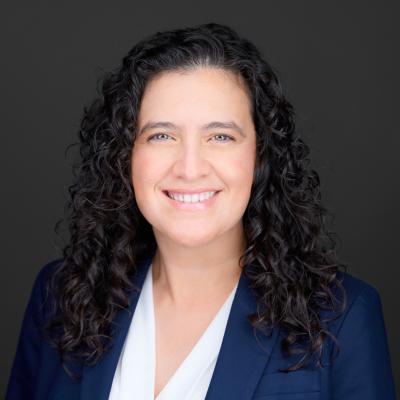
Dr. Perla B. Gámez, Chair Elect
Dr. Perla B. Gámez is Associate Professor of Developmental Psychology at Loyola University Chicago (LUC). She received a PhD from the University of Chicago and was a post-doctoral fellow at the Harvard Graduate School of Education. Dr. Gámez leads a program of research focused on the language and literacy development of Spanish-speaking Latinos (also referred to as Bilinguals, Dual Language Learners, English Language Learners), with particular attention to describing their linguistic strengths and diversity. Her research examines how variations in the features of language that Latino children are exposed to at home and in school—at different developmental time points—impact their dual language and literacy skills (Spanish, English). Dr. Gámez’s research has been funded by grants from the National Institutes of Health, National Science Foundation, and William T. Grant Foundation as well as supported by a National Academy of Education/Spencer Postdoctoral Fellowship and Institute for Education Sciences Dissertation Year Fellowship. Her work has been published in journals in education and psychology, including Child Development, Developmental Science, Developmental Psychology and Reading Research Quarterly. Dr. Gámez has been honored by a Master Researcher Award at LUC, and her teaching and mentoring have earned her the Edwin T. and Vivijeanne F. Sujack Award for Teaching Excellence.

Dr. Michelle Pasco, Secretary
Dr. Michelle Pasco is an Assistant Professor in the Department of Family Social Science at the University of Minnesota. Her research agenda focuses on 1) advancing methods to examine neighborhood environments, 2) how neighborhoods impact adolescent development, and 3) neighborhood and family influences on cultural processes and experiences. She uses several methods including systematic social observations, quantitative and archival data, qualitative narratives, photo elicitation and photovoice to assess neighborhood environments and obtain different aspects of residents’ lives.

Dr. David Menendez, Treasurer
Dr. David Menendez is from a Cuban-Colombian immigrant family and was raised in Medellin, Colombia. He received his A.A. from Miami Dade College, and his B.A., M.S., and PhD. in Developmental Psychology from the University of Wisconsin-Madison. Dr. Menendez is currently an Assistant Professor of Psychology at the University of California-Santa Cruz. His research takes a socio-cultural approach to understand learning and development. He examines how children’s conceptual development is the result of a socialization process, where children learn culture specific causal theories to explain phenomena such as death, illness, and genetic inheritance. Using a combination of quantitative and qualitative methods, he shows how children’s conceptions of scientific concepts develop early on through interactions with media, conversations with caregivers, and participation in cultural rituals. In a second line of work, he examines how children learn and generalize STEM concepts and how modifying the language and images in lessons and curricular materials leads to differences in children’s learning. His current research examines how children who celebrate Día de los muertos think about the afterlife, how animated films spark parent-child conversations about death, and how children from different communities in the U.S. think and learn about illness and health inequalities.

Itzel Aceves-Azuara, Social Media Manager
Itzel Aceves-Azuara is a sociocultural developmental psychologist focusing on the cultural aspects of learning and childrearing practices. Her work supports the strengths of Latine and Indigenous families, emphasizing their community-mindedness, sophisticated collaboration, and keen attention. She also explores how these families maintain cultural values for learning and engagement while adapting to globalization and resisting colonizing forces. Her goal is to empower students to excel as professionals serving their communities. Through integrating teaching, research, and service, she fosters holistic growth and removes barriers to success, creating an inclusive educational journey for every student.

Dr. Melinda Gonzales-Backen, Member at Large
Dr. Melinda Gonzales-Backen is an Associate Professor and Associate Chair for Diversity, Equity, and Inclusion in the Department of Psychological and Brain Sciences at the University of Massachusetts, Amherst. Prior to joining the faculty at UMass, she was faculty in the Department of Human Development and Family Science at Florida State University for 12 years. She earned her Ph.D. and M.S. in Family and Human Development from Arizona State University and her B.A. in Psychology from the University of Arizona. Her research is centered on the collective roles of cultural, contextual, and familial processes in the well-being of Latinx adolescents and emerging adults. Specifically, she is interested in how adolescents learn about and engage in their ethnic-racial and cultural background and the role of family in that process.
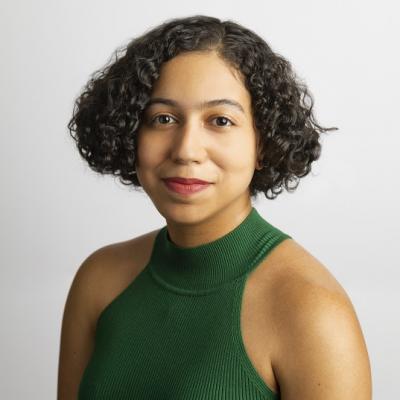
Dominique La Barrie, Member at Large
Dr. Dominique La Barrie is an Assistant Professor at Virginia Tech. Dr. La Barrie recently graduated from the University of Georgia (UGA) with a doctoral degree in developmental psychology. At Virginia Tech, Dr. La Barrie directs the RAICES Lab (Resilience, Adolescents, Identity, Culture, Education, Socialization), which focuses on how cultural processes protect youth against the effects of trauma and discrimination. Rooted in her identity as an Afro-Latina scholar, Dr. La Barrie’s work examines ethnic-racial socialization (ERS) and the role of kin networks, especially non-parental members like grandparents, in promoting youth well-being. At UGA, Dr. La Barrie founded a mentoring program for underrepresented minority (URM) students, coordinated summer research fellowships, and secured funding to support URM advancement. Beyond UGA, she served as a graduate representative for the SRCD Latinx Caucus, helping strengthen mentoring, fundraising, and programming efforts, including serving as a member of the 2025 Latinx Caucus Biennial Planning subcommittee. Now, as a Member-at-Large for the Latinx Caucus, Dr. La Barrie remains committed to fostering equitable, supportive spaces for historically marginalized scholars through mentorship, collaboration, and advocacy.
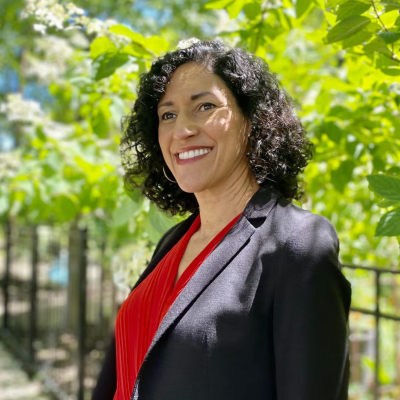
Dr. Bernadette Sánchez, Member at Large
Dr. Bernadette Sánchez is a Professor of Human Development & Learning in the College of Education at the University of Illinois Chicago. She is an expert on the role of mentoring in the healthy development of adolescents from urban, low-income and racially minoritized communities, particularly Latinx and African-American youth. Her research examines community-based interventions and programs, the resilience and resistance of youth who are marginalized in U.S. society, and the racial and ethnic processes (e.g., racial discrimination, racial/ethnic identity) that impact the development of youth and their mentoring relationships. Bernadette has received funding from the National Institutes of Health (NIH) and the National Science Foundation (NSF) for her mentoring research and from the William T. Grant Foundation. She was a Distinguished Fellow of the William T. Grant Foundation, and she is currently an Associate Editor of the American Journal of Community Psychology and a Fellow of the Society for Community Research & Action (SCRA; Div 27 of the American Psychological Association). Bernadette is a member of the Research Board for the National Mentoring Resource Center and received an Ethnic Minority Mentoring Award from SCRA. Bernadette is a first-generation college student and received her B.A. in Psychology from Fairfield University and her M.A. and Ph.D. in Community and Prevention Research from the University of Illinois Chicago.

Olivia Martín-Piñon, Student Representative
Olivia Martín-Piñón, Ph.D. recently earned her doctoral degree in Human Development and Family Science at Auburn University. Currently, Dr. Martín-Piñón is the Presidential Postdoctoral Fellow in Psychology at Arizona State University. Her research examines youth health by aiming to understand the associations among youth bioregulation (i.e., sleep and stress physiology), mental health, parenting, and the home environment, especially economic strain. Olivia applies multiple biopsychology methods, including actigraphy and psychophysiology, and uses advanced quantitative methods such as nonlinear and multilevel modeling to examine these associations. Olivia has worked in basic and applied settings, including multiple NIH-funded projects, a community sleep intervention, and translational research on early literacy in English and Spanish. Her published work can be found in Developmental Psychobiology, Child Development, and Sleep Medicine, among others. Outside of research, Olivia's advocacy focuses on students with disabilities and graduate student employment.

Danieli Marie Mercado Ramos, Student Representative
Danieli Marie Mercado Ramos, M.S., M.A., is a passionate advocate for Latinx and immigrant-origin youth—her research focuses on belonging, identity development, and bilingualism in educational settings, particularly predominantly white institutions. A native of Puerto Rico, Danieli earned her B.A. in Psychology from the University of Puerto Rico, Mayaguez Campus (2020), an M.S. in Developmental Psychology from Illinois State University (2022), and an M.A. in Developmental Psychology from Loyola University Chicago (2025). She is an incoming fourth-year Ph.D. student at Loyola University Chicago; she works in the Juntos Lab and collaborates with the BiLD Lab. Her move from Puerto Rico to the U.S. deepened her understanding of Latina identity in predominantly white spaces, shaping her academic and advocacy interests. As an SRCD Horowitz Scholar and an active Latinx Caucus member, Danieli has previously served on the fundraising committee, where she collaborated with fellow Latinx scholars. These roles and her experience managing research projects have strengthened her leadership and communication skills. Danieli is committed to continuing to elevate Latinx student voices, foster belonging, and promote inclusive spaces within SRCD and the Latinx Caucus during her role as a student representative.

Dr. Doré R. LaForett, Past Chair
Doré R. LaForett is a Research Scholar at Child Trends. She earned her BA in psychology and Spanish from the University of Denver, her MA in clinical-community psychology from the University of South Carolina, and her PhD in clinical psychology from Temple University. She completed clinical and research post-docs at the University of North Carolina at Chapel Hill, where she worked for 16 years. An early childhood researcher, Dr. LaForett’s work spans the areas of dual language development and education, parenting and family engagement, social and emotional learning, and early care and education programs. She was recently Principal Investigator of the “Bilingualism, Education, and Excellence/Bilingüe, educación y éxito” project, funded by the Institute of Education Sciences (IES, US Department of Education), which focused on K-3 students attending dual language education settings. In addition to her work focused on Hispanic populations, Dr. LaForett has had leadership roles on several state-level program evaluation studies related to early childhood services including state pre-k programs and other initiatives that inform public policy and programs. Her products can be viewed here. She is an associate editor for Journal of Early Intervention, and has served as an expert on diversity, equity, and inclusion for IES. Dr. LaForett was a founding member of the SRCD Latinx Caucus and is a licensed psychologist in North Carolina.
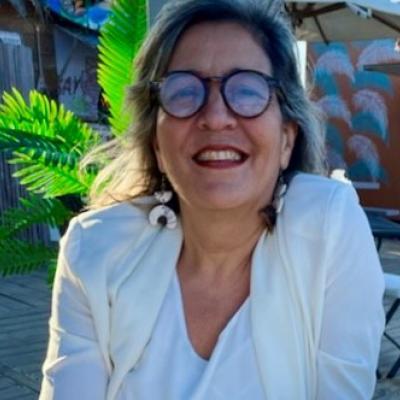
Dr. Cynthia Garcia Coll, Honorary Board Member
Cynthia García Coll, Ph.D., is the Charles Pitts Robinson and John Palmer Barstow Professor Emerita, at Brown University. Since 2011, she is Adjunct Professor-Pediatrics, University of Puerto Rico (UPR) School of Medicine. Her research focuses on the interplay of sociocultural and biological influences on child development, in populations that live in at-risk conditions and/or are minoritized. She received her BA-UPR, her MA-University of Florida and her PhD-Harvard University. Dr. García Coll was senior editor of Child Development and Developmental Psychology. She is a fellow of APA and APS and has received awards from Tufts and Brown University, the SDBP, SRCD, the Latino Caucus (SRCD), Progreso Latino and a Doctorate in Humane Letters, Honoris Causa, Erikson Institute. She has been on the governing boards of the United Way of Rhode Island, the Rhode Island Community Foundation, SRCD, SSHD and FCD. She was a member and Chair of the Young Scholars Program, WT Grant Foundation, for eleven years. Her research was funded by NIH, the McArthur Foundation, the WT Grant Foundation, and the Spencer Foundation. She has three adult children, three grandchildren and is currently an active yoga and mindfulness practitioner and teacher.
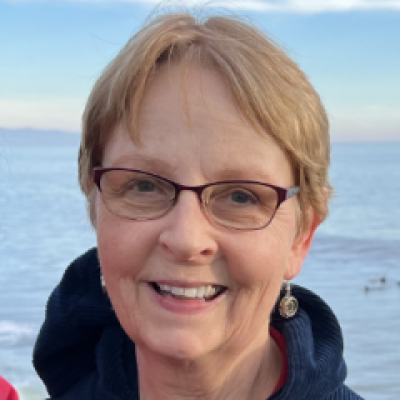
Dr. Barbara Rogoff, Honorary Board Member
Barbara Rogoff is UCSC Foundation Distinguished Professor of Psychology at the University of California, Santa Cruz. A leading scholar in sociocultural developmental psychology, her research explores how children learn through participation in everyday activities, with a focus on Indigenous and Mexican-heritage communities of the Americas. Dr. Rogoff’s work has illuminated the cultural nature of learning, collaboration, and observation, challenging dominant paradigms in developmental science. Her award-winning scholarship—including the acclaimed book Developing Destinies—has shaped global conversations on education, culture, and human development.